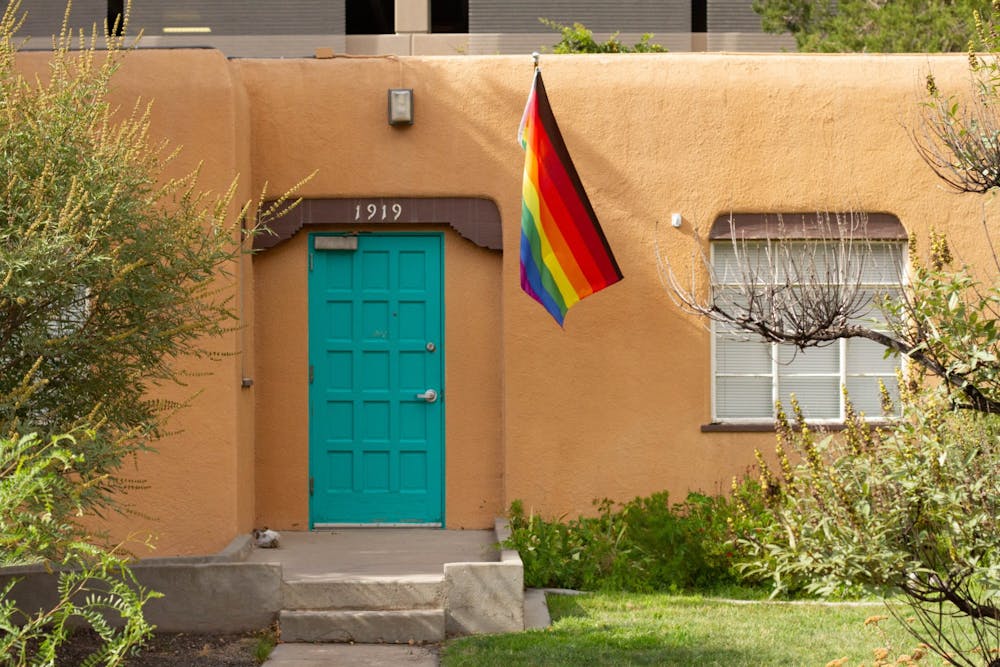New Title IX regulations require the University of New Mexico to make changes to the way it addresses sex discrimination and sexual misconduct by August 1.
The regulations – released by the U.S. Department of Education on April 19 – broaden the University’s jurisdiction to respond to Title IX complaints; expand mandated reporting of sex discrimination and sexual misconduct; and clarify language and definitions around sexual harassment, sexual orientation, gender identity and sex stereotypes. The regulations also increase protections for pregnant individuals at UNM.
Title IX is a federal law passed in 1972 that protects people from sex-based discrimination in education programs or activities that receive federal financial assistance.
Sex discrimination now explicitly includes discrimination based on sexual orientation and gender identity. This led federal judges to temporarily block President Joe Biden’s administration from enforcing the new regulations in 14 states, saying the Department of Education lacks the authority to make the change, according to Inside Higher Ed.
New Mexico has not faced legal challenges related to the regulations, according to UNM Title IX Coordinator Angela Catena.
Frankie Flores, the director of the UNM LGBTQ Resource Center, said at a Title IX town hall on Friday, July 12, that UNM already does some of what is newly required.
“I was very excited to see how wide the language was. It’s not just lesbian, gay, transgender. It also includes nonbinary, asexual and intersex,” Flores said at the town hall. “To me, that was an exciting moment – to see how far we are progressing with our terminology. It also gave me a moment of pride.”
Sex stereotypes and sex characteristics were previously protected under Title IX, but are now explicitly stated in the regulations.
In terms of jurisdiction, UNM will now be able to investigate complaints about incidents that occur off campus through Title IX, according to Catena. Previously, Title IX only applied to incidents that occurred on campus or within a UNM program or activity, Catena said, though UNM investigated off-campus incidents through its own separate procedure.
“If something bad happened to you, we’re here, it doesn’t matter,” Catena said.
The regulations require UNM employees to report to the UNM Compliance, Ethics & Equal Opportunity office when students disclose incidents in assignments, during class discussions and at awareness events. This will not lead to an investigation – rather, the student who discloses the incident will receive an email with resources, Catena said.
“I understand academic freedom; I understand freedom of expression, especially in classrooms … The Department of Education is trying to balance that line and I don’t think there’s a perfect way to do it,” Catena said.
Get content from The Daily Lobo delivered to your inbox
Senior Vice Provost for Academic Affairs Barbara Rodríguez is concerned mandatory reporting requirements might dissuade people from disclosing incidents, she said at the town hall.
“I have really mixed feelings about enshrining mandatory reporting policies,” Rodríguez said at the town hall. “I’m concerned about trauma-informed responses to sexual harassment – we know that trauma-informed responses really require empowerment of voice and choice of the individual who is impacted.”
Catena will work with faculty – particularly in the English and women, gender and sexuality studies departments – to construct parameters around the new mandatory-reporting regulations, she said.
Under the regulations, if someone accused of sex discrimination or sexual misconduct is a mandated reporter, they must report themselves. All UNM employees are mandated reporters, according to Catena.
Protection for pregnant individuals includes protection for “related conditions.” These include childbirth, nursing and abortions. The regulations require UNM employees to provide pregnant students with Catena’s contact information, who will then provide them with resources.
The regulations also require lactation spaces to be available around campus.
The regulations place further emphasis on “supportive measures,” which the University can implement when someone discloses an incident. Examples of these include modifying someone’s work or class schedule, providing escorts on campus and changing someone’s work or housing location, according to Catena.
A new presidential administration in January 2025 could bring further changes to Title IX, according to Catena. It is difficult for universities to quickly make big policy changes in the face of new regulations back-to-back, Catena said. Title IX last underwent significant changes in 2020.
“It is incredibly unfortunate that Title IX has come into the political arena, because it changes every time there’s a new president. And then it just harms the people we’re trying to protect, because it’s always different and (students and employees) don’t know what to expect, and that’s not fair,” Catena said.
Lily Alexander is the 2024-2025 Editor of the Daily Lobo. She can be reached at editorinchief@dailylobo.com or on Twitter @llilyalexander
Lily Alexander is the 2024-2025 Editor of the Daily Lobo. She can be reached at editorinchief@dailylobo.com or on Twitter @llilyalexander






